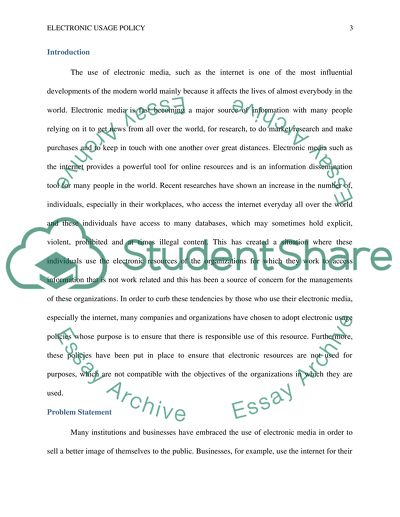Cite this document
(“Electronic Usage Policy Research Paper Example | Topics and Well Written Essays - 1750 words”, n.d.)
Retrieved from https://studentshare.org/human-resources/1480218-electronic-usage-policy
Retrieved from https://studentshare.org/human-resources/1480218-electronic-usage-policy
(Electronic Usage Policy Research Paper Example | Topics and Well Written Essays - 1750 Words)
https://studentshare.org/human-resources/1480218-electronic-usage-policy.
https://studentshare.org/human-resources/1480218-electronic-usage-policy.
“Electronic Usage Policy Research Paper Example | Topics and Well Written Essays - 1750 Words”, n.d. https://studentshare.org/human-resources/1480218-electronic-usage-policy.


